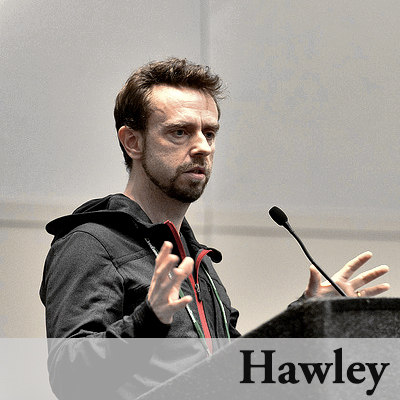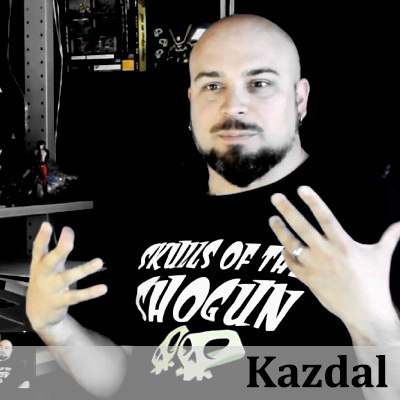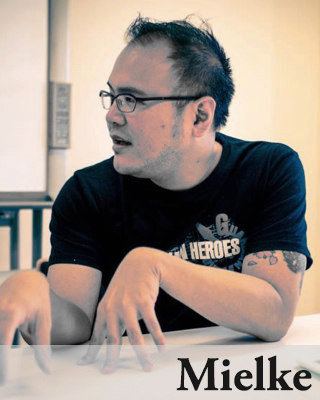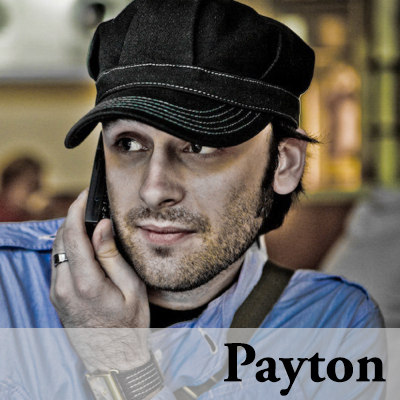The Emotional Price of Making Video Games
Making games can be a grueling, all-consuming process. John Davison talks to developers about the significant emotional challenges of this creative and commercial endeavor.
When you fire up a new video game, some elements are easy to appreciate immediately. Pretty graphics, a rousing soundtrack, or fluid animations can leap off the screen and make you thankful for all the hard work that went in to the game's creation. However, beneath that veneer lie untold hours of struggle and sacrifice. As six industry veterans explain, creating an amazing game takes more than your time and technical prowess. It requires a bit of your heart as well. Despite occasional media flare-ups triggered by complaints about ridiculous working conditions or inconsiderate executive teams, the game-playing populace doesn't often hear about the mental burden shouldered by game creators. Executing on a creative vision, and doing so both on-time and on-budget, imposes an enormous amount of pressure on those involved.
 "Making anything creative relies on you putting yourself out there and totally revealing yourself; it's scary," says Greg Zeschuk, who co-founded BioWare with partners Ray Muzyka and Augustine Yip in 1995 and retired last year. He is currently taking some time off from anything to do with games and is producing a YouTube show called The Beer Diaries about the other love of his life. "You need to be willing to be vulnerable in a very public sense. This experience changes when teams get larger and larger; if you're running part of a project, it's pretty natural for it to feel like an extension of yourself."
"Making anything creative relies on you putting yourself out there and totally revealing yourself; it's scary," says Greg Zeschuk, who co-founded BioWare with partners Ray Muzyka and Augustine Yip in 1995 and retired last year. He is currently taking some time off from anything to do with games and is producing a YouTube show called The Beer Diaries about the other love of his life. "You need to be willing to be vulnerable in a very public sense. This experience changes when teams get larger and larger; if you're running part of a project, it's pretty natural for it to feel like an extension of yourself."
This sentiment is common among those in creative leadership positions. Ryan Payton is the founder of Camouflaj, a new studio working on the iOS game République, which was successfully funded on Kickstarter in 2012. Payton previously worked as assistant producer on Metal Gear Solid 4 at Kojima Productions, and later spent time as creative director on Halo 4 before leaving 343 Industries in 2011. He concurs with Zeschuk, stating, "In order to make an unforgettable game, I believe the onus is on me to find something I believe in and inject as much of that into the game as possible. I feel that the games I work on are an extension of myself, making game development a very personal and emotionally charged endeavor. I worry that I take a dangerous approach by investing too much emotionally in the development, but this stems from my belief that games should be more than mere 'products.'"
The Ups and Downs
"The emotional journey, for me, looks like a seismograph," says Greg Kasavin of Supergiant Games. Before the success of his game Bastion, on which he was creative director, Kasavin was an associate producer at Electronic Arts on Command & Conquer 3, the producer of Command & Conquer: Red Alert 3, and later a producer on Spec Ops: The Line at 2K Games. "It's not a curve with peaks and valleys; it's a violent jagged series of near-vertical lines. I don't know how emotionally stable I appear to be, but I know I'm less so than I appear to be. My emotional state changes from day to day, if not multiple times a day. I don't have sustained periods of high or low morale. Small imperceptible things affect me in significant ways."
"In every case the precise emotional journey is different," explains Zeschuk, "though there are a few similarities. When you start a game, it seems like anything is possible; the future is bright and the possibilities are limitless. Fast-forward to the actual production phase, and you suddenly realize that if you want to finish on a reasonable schedule, you need to jettison some stuff; it's helpful to be harsh and cold to do this, even if it's painful. Then, when you're finishing, even if you think what you're making is great, I always felt a bit of trepidation around what people would think of the game. You never really know. We'd always try our best, and put forward our best work, but there's always that risk that folks wouldn't like it. The most likely outcome is that you'd end up with some mixed response, though with varying degrees of happy and unhappy people."
 "When you talk about the pressure that individuals at studios go through, most people just think of the EA spouse story," says Pete Hawley, co-founder of Red Robot Labs (disclosure: John Davison currently works alongside Pete Hawley at Red Robot Labs). He is referring to Erin Hoffman's LiveJournal post in November 2004 under the pseudonym "EA Spouse," where she criticized Electronic Arts' poor treatment of employees and the expectation that they work extremely long hours.
"When you talk about the pressure that individuals at studios go through, most people just think of the EA spouse story," says Pete Hawley, co-founder of Red Robot Labs (disclosure: John Davison currently works alongside Pete Hawley at Red Robot Labs). He is referring to Erin Hoffman's LiveJournal post in November 2004 under the pseudonym "EA Spouse," where she criticized Electronic Arts' poor treatment of employees and the expectation that they work extremely long hours.
The blog prompted a great deal of debate within the games industry at the time and triggered class-action lawsuits against EA, which weren't resolved until 2007. Hawley served as both executive producer and vice president of product development at Electronic Arts in the years after the controversy, where he worked on a number of games, including Burnout Paradise. Prior to this, he worked as development director at Sony Computer Entertainment, was head of production at Lionhead, and was a producer at GT Interactive. "The notoriety of that incident wasn't necessarily a bad thing," he says, "as it brought an aspect of the challenges to light. What everyone focused on at the time wasn't the whole story, though. Most people fixated on the lawsuit and the legal wranglings. What it really brought to light, though, was that studios and individuals go through hell when creating something as awesome as a video game. The emotional journey it takes you on is really, really hard."
"My emotional state changes from day to day, if not multiple times a day."Regardless of the best intentions of those involved, executives or otherwise, the care and attention required means that work-life balance becomes a major issue on any game project. "It's exciting and energizing, but it's almost a reality-show-type environment," Hawley explains. "You're stuck in a room with a bunch of like-minded individuals, 20- to 30-something dudes. It's just not healthy. It definitely develops these Lord of the Flies-type situations. You've spent so long together that you develop a group craziness. You witness the very pinnacle of sleep-deprived in-jokes, and songs that are unique to the group. To this day I can't hear Journey without thinking of Burnout, because Alex [Ward, Criterion's creative director] would play it every single morning."
Payton is struggling with similar issues and has become increasingly aware of struggling with a healthy work-life balance since starting to work for himself. "I've worked a minimum of 70 hours per week since République began development in November 2011," he explains. "As I did with Halo 4, I only play games, watch movies, and read books that are relevant to République--that's my hobby. Making games is my hobby; it's my passion, and it's my lifeblood, as I liquidated everything I had to get this sucker off the ground. I even sacrificed my relationship with my girlfriend, ending a five-year relationship."
"Thankfully she later took me back and has helped me disconnect a little bit from the emotional demands of my games, which was something I very desperately needed." That disconnection has come in the form of finding something a little more balanced in favor of "real life" as well as game development work. "I still work 70 hours a week and still dream about the game," he explains, "but daily exercise and turning off email after 8 p.m. is actually making me a happier person. Does that mean my emotional investment in game making is waning? I sure hope not. That's probably why I'm afraid to have children."
 Jake Kazdal spent much of his career as a designer, illustrator, and artist before forming his own studio, 17-Bit (formerly Haunted Temple Studios). His career includes time working on some cult classics like Space Channel 5 and Rez, as well as working on UI design for Boom Blox at EA and as a concept artist for Command & Conquer 4. His first release as an independent developer is Skulls of the Shogun, which was recently released on Xbox Live as well as for Windows 8 and mobile. Kazdal, like many of those interviewed for this story, has grown up with the games business, and has had two children since his career began.
Jake Kazdal spent much of his career as a designer, illustrator, and artist before forming his own studio, 17-Bit (formerly Haunted Temple Studios). His career includes time working on some cult classics like Space Channel 5 and Rez, as well as working on UI design for Boom Blox at EA and as a concept artist for Command & Conquer 4. His first release as an independent developer is Skulls of the Shogun, which was recently released on Xbox Live as well as for Windows 8 and mobile. Kazdal, like many of those interviewed for this story, has grown up with the games business, and has had two children since his career began.
On the subject of work-life balance within studio culture, he has a lot to say. "This is a serious topic," he states earnestly. "I don't get to spend nearly as much time with my family as I would like or need to. I have two young boys. They're 1 and 3 years old, and the fact is, I need to work a lot to get things done. Regardless of how busy I am, I've started going home and having a normal dinner and bedtime prep with the family twice a week. If I don't, my wife is going to kill me."
"Some nights I'll go back to work from home after the boys go to bed, and unless there is something major burning, I try to spend every minute of my weekends with the family as well," he adds. "Of course, there is always an hour or two of email and the like to distract me in the mornings, but I'm working very hard to spend more time with my family. The boys are growing so fast, and it breaks my heart to only see them a few minutes a day, but I'm sure I'm not alone in this situation."
James Mielke is one of the lucky ones. Previously an editor at Electronic Gaming Monthly, he moved to Japan to work as a producer on Child of Eden at Q Entertainment, before moving on to be both the producer and musical director on Lumines Electronic Symphony. He is currently a producer on two different projects at Q-Games in Kyoto, Japan. "I can only speak from experience, and my particular case isn't that dramatic. I always make sure my home life doesn't suffer as a result of my professional life."
"I visited Neversoft one year, when they were still working on Tony Hawk in the early 2000s," he recalls. "They made a big impression on me because they ran strict 9 a.m. to 6 p.m. hours, with a little more time put in during crunch. They were adamant about getting better results out of refreshed staff, and not grinding them down. In Japan, a large percentage of dev teams here famously work their fingers to the bone, and I don't think that's healthy. I'm lucky to have worked for two very progressive companies in Japan where I haven't had to burn the midnight oil."
Publisher and Executive Pressure
Since the days of the EA spouse scandal, things have changed for the better at a lot of studios. While we still hear occasional stories about insensitive executives imposing their will upon studios, the general sense from the developers spoken to for this story is that things have improved. That's not to say that there aren't still problems exacerbated by the different skill sets and attitudes exhibited by creative talent and business leaders. "Executive cowardice can still be an issue," says Hawley. "At some publishers, you still see that they don't have the leadership skills to communicate the vision. They don't have the balls to fire the poor employees, so they compress the insecurities and the inabilities to manage onto those who can do it. That means that the 15 percent of the studio that really cares sucks up the pressure, the passion, the caring, the bad people. You have to suck it up like a sponge and still deliver."
 A lot of developers are reluctant to discuss some of the more egregious problems they encounter working with publishers and executives for fear of souring relationships and threatening the tenuous financial security that they can provide. Mielke articulates the biggest challenge, though--that of communication. "It's hardest when I know I have to deal with people who are poor communicators in positions of power and are a part of our pipeline. This is where the bottleneck forms. One thing I've learned is that the French take lots of vacations and also aren't great at setting out-of-office notifications. As connected as we are these days, there's no reason for someone to just disappear without a heads-up. It's fine if you don't want to field work emails on your vacation, but do let people know you're just on vacation and not ignoring someone for two weeks."
A lot of developers are reluctant to discuss some of the more egregious problems they encounter working with publishers and executives for fear of souring relationships and threatening the tenuous financial security that they can provide. Mielke articulates the biggest challenge, though--that of communication. "It's hardest when I know I have to deal with people who are poor communicators in positions of power and are a part of our pipeline. This is where the bottleneck forms. One thing I've learned is that the French take lots of vacations and also aren't great at setting out-of-office notifications. As connected as we are these days, there's no reason for someone to just disappear without a heads-up. It's fine if you don't want to field work emails on your vacation, but do let people know you're just on vacation and not ignoring someone for two weeks."
Kasavin relays a similar sentiment. "I see games as a form of communication, so my concern while working on a game boils down to a simple question: Am I getting through, or am I not? This applies both to the work itself as well as to my role as a collaborator and member of a team. There are many crucial aspects of game development that have nothing directly to do with the game. There are the business imperatives of your studio. Are you going to make payroll? Does a key member of the team have one foot out the door? Are there other personnel issues threatening the project? Creating a positive work environment in which talented people feel motivated to collaborate and do their best work is a very challenging, active, ongoing process."
Even as recently as five years ago, the attitudes at some of the big publishers were still quite hostile toward the creative process, and the pressure was more about getting the product onto shelves than making the best product possible. "During my time on Burnout--this was before Riccitiello, and before the [EA group labeling] strategy that you see now--I told the previous worldwide executive team that the game wouldn't launch in March 2008 as we'd originally planned and that it needed to run until October," Hawley says. "The C-level people told me, 'I don't care if it's a 7 out of 10. Ship it you c*nt.' The creative director and I were the guys that had to go out and get the essence of that message to the team while conveying that we were all good and that they could carry on. That pressure builds up." Production on Burnout Paradise did, in fact, run until October of 2007, and at that point the decision was made to hold the game until January 2008 in order to position it away from the holiday glut of releases.
Crunch
"It's not just that kind of pressure from executives that's the big issue, though," says Hawley. "It's the pressure cooker of the last six months of a dev cycle. It's the people that just go home and don't give a shit. It's running out of time, but wanting it to be the best thing ever. Finite time; finite people. Plus, [there's] the lack of sleep and not seeing your wife or your kids. You go through the summer working ridiculously hard and not getting any time off. In that kind of situation you're not going to be with your kids. You don't get that back."
 This "crunch" phase of game development is felt very differently by people of different dispositions. All of the developers interviewed characterized crunch time as a necessary evil in one way or another, and while it isn't necessarily "nasty," it creates a situation and a set of unique pressures that some people thrive in but others just can't deal with.
This "crunch" phase of game development is felt very differently by people of different dispositions. All of the developers interviewed characterized crunch time as a necessary evil in one way or another, and while it isn't necessarily "nasty," it creates a situation and a set of unique pressures that some people thrive in but others just can't deal with.
"It's tempting to say that the most stressful parts of working on a game are the crunch times," says Kasavin. "Those consecutive late nights when you're under the gun trying to make something good under an extreme time pressure. These times are intense. However, for me, the most stressful times in the development process are the very slow times--the downtimes between projects or the meandering days at the start of a project. The very early stages when it's all blue sky, a lot of talk, and not so much action. These periods are the ones that fill me with the most anxiety, partly because I'm not busy enough to be able to set that anxiety aside."
Phrases like "intense" and "all-consuming" are often used in the discussion of getting a game finished. For anyone on a development team with any kind of emotional investment, the last six months are incredibly challenging and see the teams chasing both their deadlines and their own insecurities. The schedules they are forced to keep in order to deliver put them under enormous pressure, and many find that their day-to-day behavior tangibly changes. As you would expect, they have to balance their singular focus with lack of sleep, very little personal time, and the project at hand becoming less their "job" and more their whole life.
"A few years back, I got very defensive when a trusted colleague of mine criticized a massive prototype I had crunched on with a team for many months, pointing out all the flaws," Payton reveals. "My colleague was totally in the right to point those problems out, but my brain just wasn't in the right space to receive that kind of feedback. All I was thinking was, 'Do you not see what we just accomplished? Against all odds, we did this amazing thing from the ground up!' I wasn't in the mindset to receive critique. If anything, I just needed a pat on the back for all we had sacrificed, despite the deliverable's flaws. But that was my fault. I wasn't able to emotionally decouple myself from my work and look at it objectively."
"It's hardest when I know I have to deal with people who are poor communicators in positions of power."Since then I've matured and gotten a thicker skin," he adds. "I've needed to tone down my emotional investment in the game, partly to bring balance to my life, partly so I'm able to look at my games with more objectivity. That's not to say that I'm not 100 percent committed to République, but in order to remain objective and receive good feedback, I can't love the game unconditionally anymore. In fact, I'm trying to train my brain to hate République now. I'm trying to be the consumer who needs to be proven that the game doesn't suck. When we get closer to ship, I intend to be the game's worst enemy."
"Crunch time on any game is all-consuming," explains Kazdal. "When I was living in Tokyo working on Rez, every time I went hiking or clubbing or played games, I was always thinking about how the experience was relevant to the project. It's not simply work, not even close. It's everything. Forcing yourself to take time off and just not think about the game and not be planning stuff in your subconscious is very difficult to do, but necessary."
"The fundamental problem is that it becomes so all-consuming that when you're at home, away from the office, you're not really at home," says Hawley. "There's a big difference between physically being at home and being emotionally engaged with your family. During the last six months of a project, you can't think of anything else. It's not possible."
Post-Ship Dysthymia
Traditionally, game studios have tended to work in a cycle that sees a game come together over the course of two years. The first year starts off extremely slowly and moves at a pace that many of us would consider like that of a "normal" work schedule. There are then six months of escalation, where the work becomes much more difficult, followed by another six months of the project consuming every waking hour. Until relatively recently, once a game shipped, that was it. "It was almost confusing," says Kazdal. "There's so much excitement, so much effort up to that moment of launch, and then…what? It's sealed away in a shrink-wrapped case or sent off to the publisher, and you can't touch it, ever again. Lots of developers talk about post-ship depression, and I think it's a very natural reaction to being so emotionally wrapped up creatively in this thing that has been growing and solidifying for years, and one day it's just…over. It's hard to deal with."
"The fundamental problem is that it becomes so all-consuming that when you're at home […] you're not really at home."Teams are changing quite dramatically now, as more and more projects are viewed as "services" rather than simply products that are shipped before moving on to the next thing, but for many studios, the cycle is still fundamentally the same as it has been for many years. "Your brain is spinning at 12,000rpm during crunch. Then when you're finished, you drop to an idle," Hawley explains. "You've just trained your whole life to operate at a level like a Formula One car, and then when you stop…then what? What do you do when you can go home at 6 p.m.? What are you going to do? It's really hard to reengage with your family. Watching a movie is really hard. Having the focus to read a book or play the guitar is stupidly hard. Your brain is still going at a high speed, and it's difficult to reengage, and it can take about a month to properly slow down."
"The post-release phase for non-service-based games [those that aren't MMO games] were always a bit weird," says Zeschuk. "Ray [Muzyka] and I always warned our project directors about the relative sense of loss and disengagement that occurs post-launch. It's great when you're fortunate enough to see the accolades roll in, but even then the person at the center of development that was running 100 miles per hour every day suddenly isn't all that important anymore. That person goes from being the center of everything to just a regular person; the change is incredibly profound. The post-launch phase for a service-based game, or even a game with a lot of follow-on content, is quite different, as things tend to accelerate post-launch. This is even more significant with an MMO or purely service-based game, as there's usually more to do after launch versus pre-launch. Personally, I did more work after the launch of Star Wars: The Old Republic than I did before launch on any game in my entire career; we rolled out so many programs and had a huge team running worldwide 24/7. We put ourselves under incredible pressure to deliver. It was tough."
 "When a game goes out the door, you figuratively lose a part of yourself," says Payton. "Especially for people like me who invest so much of themselves into their creation, it's extremely hard to take this formless creation, copy and paste it millions of times, and share it with the world. It's no longer yours, and that's hard to come to terms with."
"When a game goes out the door, you figuratively lose a part of yourself," says Payton. "Especially for people like me who invest so much of themselves into their creation, it's extremely hard to take this formless creation, copy and paste it millions of times, and share it with the world. It's no longer yours, and that's hard to come to terms with."
"I've never felt more hollow or empty as after everything was done and I was no longer at the center of the web of activity required to deliver the game successfully," Zeschuk says. "I was never really relieved per se. I suppose it's almost like a depression, but I think that would be overstating it; the medical term for it is dysthymia: a brief emotional disruption not as deep as depression that's often preceded by a causative event. Depression is a whole different kettle of fish and a challenge for game developers, but also people in all other walks of life."
"Completing a project is a disorienting feeling," says Kasavin. "There is no clear endpoint. Typically you submit a game to certification, at which point you can no longer work on it and just have to wait for external approval. If and when that approval comes, congratulations, you're done! Except, the game isn't out yet, so you get to enjoy that moment of success in solitude. I could never celebrate those "gone gold" moments too much, knowing that the game isn't yet in the public's hands, and the real moment of truth is yet to come. It doesn't matter that I'm finished. What matters is, what will people say when they play it? I'm not making this stuff just for me. Even then, once a game is officially released, there is no clear endpoint. Reviews hit, you start getting tons of feedback, sales reports. You try processing all of it, but it's hard. The dust won't really settle for a while."
"I've never felt more hollow or empty as after everything was done and I was no longer at the center of the web of activity required to deliver the game successfully."The games business is maturing along with its brightest talent. While we'll always see large-scale projects at publishers on tight annualized deadlines that serve as the "popcorn flicks" of gaming, we're seeing established talent exploring new opportunities. The traditional studio approach of living to the rhythm of a six-month crunch every two years is a crucible for talent more than capable of producing quality product, but it's an unusually stressful environment. Many gamers express incredulity when they hear about more and more established names forming small studios to work on mobile games, or smaller-scale projects, but this is only going to accelerate in the years ahead. Creative talents have more outlets for their work than ever before. Digital distribution, mobile, and tablet opportunities afford more control for the creative talent than many have seen since the early days of the business.
Without the pressure of shipping a box to retail, and without the need for many of the (now antiquated) trappings of the business, studios can march to the beat of their own drum. While getting any kind of long-term endeavor like a video game finished will always necessitate some kind of "crunch" time, and the emotional pressures that go along with that, creators are seizing control of their own destinies like never before.
Zeschuk gets the last word, ably summing the whole thing up. "Great games don't make themselves; they require passionate, dedicated people that are willing to make sacrifices to make them great. The same goes for making a great business, or making a beer webshow. When you devote yourself to it, you have a shot at success, but only a shot. If you don't devote yourself, you're screwed 100 percent of the time."
Got a news tip or want to contact us directly? Email news@gamespot.com
Join the conversation